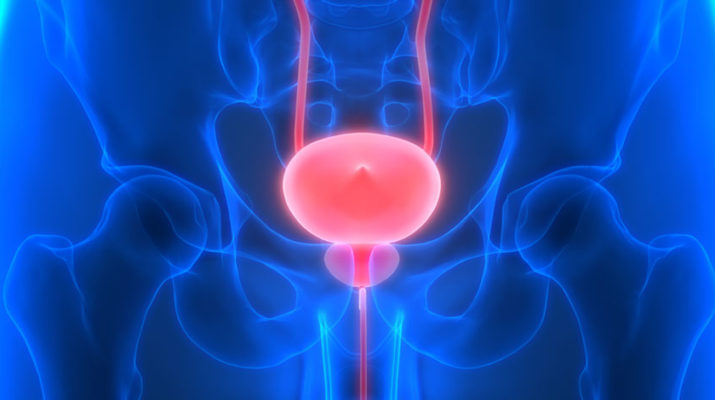Like many other tissues of the body, bladder muscles get weaker and less stretchy with age, causing a series of problems
By Deborah Jeanne Sergeant
The aging process is unkind to most of the body. The bladder is no exception. To support bladder health, you can take steps to mitigate the effects of aging.
It helps to understand better how aging affects the bladder.
“The bladder is composed of muscle and elastic fibers,” said physician William Tabayoyong, assistant professor in and urologic oncologist with University of Rochester Medical Center. “They stretch to accommodate urine and the muscle squeezes to get rid of it.”
Like many other tissues of the body, these get weaker and less stretchy with age. That means that the bladder won’t hold as much and that the bladder won’t completely empty during urination.
“It leads to frequent and incomplete emptying,” Tabayoyong said. “You feel fuller more frequently.”
For women who have given birth to multiple children, this can mean urinary leaking and incontinence, since the pelvic floor muscles support the bladder. Childbearing weakens those muscles and it can manifest years later.
“There is a condition that the musculature weakens to where the vagina begins to drop,” Tabayoyong said. “If it drops, that can kink the urethra so it makes it harder for women to urinate and empty the bladder.”
That also happens later in life.
For men, enlarged prostates can block the flow of urine from the bladder, causing them to struggle to empty the bladder completely or urinate at all.
Lifestyle changes can help maintain better bladder health. Tabayoyong recommended staying active and eating a balanced diet. Alcohol and coffee and other sources of caffeine can irritate the bladder, so reducing intake can improve bladder function.
“People don’t often think of constipation as affecting the bladder,” Tabayoyong said. “The nerves that control the bladder and rectum run in similar places. Having a large, impacted stool can affect the ability of the bladder to empty. A regular bowel regimen can often help with the bladder.”
That could include eating more foods rich in fiber such as whole grains and whole fruits and vegetables or adding a fiber supplement to the diet.
Women should also consider performing Kegel exercises.
“Doing those can help improve urinary issues,” Tabayoyong said. “Pelvic floor physical therapists can help. They specialize in helping patients focus on that specific area.”
It’s also important to empty the bladder completely whenever the urge strikes and not wait for 15 or 20 minutes. Holding it for long periods of time can stress the bladder.
Other medical conditions can exacerbate bladder problems, such as diabetes, which can affect the nerves that control the bladder and alter the sensation that the bladder is full.
“Poor blood glucose control delivers sugar to the bladder to increase frequency,” Tabayoyong said. “Getting a handle on diabetes is important.
“Patients who have problems with congestive heart failure can get edema in their legs. When they go to bed, that fluid goes into the bloodstream and gets turned into urine.”
Better managing disease such as these can help reduce bladder and urinary issues.
Physician Chanh Huynh is board-certified in family medicine and works at Churchville-Chili Family Medicine, LLC in North Chili. He said that obesity puts older patients at “significantly higher risk for urinary incontinence.”
He advises patients to drink at least eight 6-oz. servings of water throughout the day to ensure adequate hydration. Drinking plenty of water can aid in alleviating constipation, another condition that hampers urination.
Smokers should quit. In addition to its many ill effects on many bodily functions and organs, “smokers are two to four times more likely to have incontinence,” Huynh said. “For a long-term, heavy smoker — more than one pack a day — it’s six times more likely.”
He also advised that women urinate after sexual intercourse to decrease their risk for urinary tract infection.
“Post-menopausal women may benefit from a vaginal estrogen cream, but they should ask their doctor,” Huynh said.

